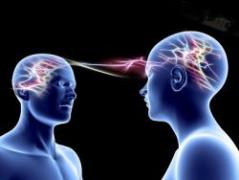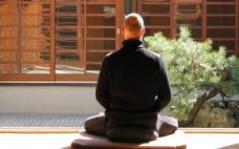 As far as science and industry endure its bet for making people feel content (it is probed that when we are content, we buy and produce more), with Coca-Cola as main actionist of that “Science of Happiness”, organizing congresses, and taking advantage of the “spark of life”… each time we have less chances to unhappiness. Happiness instead of being an option appears to be a must, for the sake of our own health and harmony with people whom we relate. Nobody wants to enter in contact with those ill “toxic” emotions. There’re no longer four hippies following the Dalai Lama the ones who speak about being happier. Everybody, including bankers and enterprisers have wonderful receipts in order to be happier, and presents themselves as new gurus or coaches in their closed environment, filling their fridges and social networks with “positive thoughts”… How much it cost to remember the keys of happiness to others! (and to remember them to oneself as well).
As far as science and industry endure its bet for making people feel content (it is probed that when we are content, we buy and produce more), with Coca-Cola as main actionist of that “Science of Happiness”, organizing congresses, and taking advantage of the “spark of life”… each time we have less chances to unhappiness. Happiness instead of being an option appears to be a must, for the sake of our own health and harmony with people whom we relate. Nobody wants to enter in contact with those ill “toxic” emotions. There’re no longer four hippies following the Dalai Lama the ones who speak about being happier. Everybody, including bankers and enterprisers have wonderful receipts in order to be happier, and presents themselves as new gurus or coaches in their closed environment, filling their fridges and social networks with “positive thoughts”… How much it cost to remember the keys of happiness to others! (and to remember them to oneself as well).
The economic depression of this decrepit Europe led us to look with envy the eternal american tv-show smile, or maybe the more photogenic smile of the tribes at the heart of Africa or at the Amazonic forest. As far as we have a greater aspiration to be happy, getting around with Buddhist monks calendars with such smiles blanked with Himalaya teeth paste, more tragic appears the unlucky that keep us messed in the deepness of our solitude, we don’t really know yet what cause that pity… Would it be caused for a past pain not resolved? Anything that hasn’t been enough explored in our childhood life? Any trauma that would be blocking my access to the perennial bliss so wished?
It’s the time to start doubting about the concept of happiness that is being shared, as a sort of “moving to the house of joy”. The great carrot used to sell us drinks, furniture, and personal development workshops. An illusory carrot that is empty and rotten. It is necessary to make clear that happiness is not an emotion, and therefore it’s not equal to joy. It’s just impossible to be always joyful. If we could be always joyful, we would quickly stop to appreciate it: emotions surge in contrast, and they are in constant transformation, in contact with the changes at the environment. Nonetheless… Can one be sad and feel happy at once? It’s emerging a new concept of happiness, more mature, that don’t try to kill any line of our wide human emotional spectrum.
Longing sadness can lead to depression. Depression don´t guide us outside, but inside, to the deepness of oneself. This is a enormous chance to discover oneself, and to have a light and plenty life. Depression only endures more time that the one necessary, contributing to suffering, when we fight against it, closing our heart. Hidding our vulnerability. Refusing to feel sadness… Refusing to feel. Stopping every distractory activity… going deeper… crying if necessary… but first of all taking time to be in solitude with the very sadness that we pretend to avoid, running from it.
When we listen our heart we can even reach to comprehend that in fact we are depressed because we haven’t allow ourselves to feel anger in the past. In the loss implicit in every mourning, there’s anger for the frustration… But getting angry is even worst seen than crying and getting sad. Studies 20 years ago reflected a great disproportion between women and men affected by emotional disorders, being the last ones “healthier”. The feminine gender has been educated specifically to repress its anger, and to apply in careful tasks, whereas the masculine gender has keep, till now, the possibility to express its anger, as well seen. Nowadays, when aggressiveness, luckily, is each time worst cultural seen… depression rates begins to be equal en men and women. One thing is to contain aggressiveness, where we are reaching a higher level of civism, and a very different one is to deny the possibility to feel anger.
“Depression starts at the moment when we feel guilty of not being capable to keep suffering in line, and then we can being glad to be alive (John Welwood). Life as it comes is not accepted… and ideals about happiness deepen the gap of that lack of acceptation.
Deepening, through meditation, in depression allow us to realize of the emptiness of existence… a void that brings great liberation, and that fill us with humility. A void that cannot be bared for the one who deny that, in fact, we are not so important and that we are not going to change the world… just a little bit is in our hands. The ego has been constructed to deny the reality of the impermanence of everything, and the lack of essential reality of what we consider to be. Depression get us naked of everything that is accessory, of everything that we will lose sooner or later.
A deep depression can even led us to wish to get closed to the boundaries of death… to see with curiosity what we would be there… and we can realize that actually we would end being the same that we are now: nothing essential, at least in what is referred to things that couldn’t surmount that barrier. We are not our beauty, nor our possessions, titles, achieves, couple, family… nothing or that will be carried.
As far as I allow myself to be dragged in meditation to the deepness of depression I touch the bottom of my own existential void. And there, contemplating that despair of that vacuity I still feel… I feel sadness… I feel my heart… I feel warmness in my veins… I feel life moving inside of me… and suddenly I allow myself to be filled with new desires. I recover the urge to live, through that “reseting” that depression has done in me. I feel that my hidden anger gets liberated, and that it fills me with a golden sensation of “being alive” in my belly…. The heart heats even more… and blood led me again to action.
Happiness therefore flows from the space where I am a privileged and empty spectator of all this performance of dance of life in my body, and of the emotions… that goes up, down, and transforms themselves… A performance where nothing remains, nor joy, nor sadness, nor anger. The only thing that remains is myself, in my very nudity. I am the happiness that bares the sort longing states of misfortune, observing them with compassion, accepting its function inside of the great performance in the drama of life.
José Miguel Sánchez Cámara
Welwood, J. (2002) Depression as loss of heart in Psychology of Awakening. Buddhism, Psychoterapy and personal Transformation. Kairos
Haz click aquí para leer este artículo en español
 “Some advanced students say that they don’t conceptualize, that they don’t calculate, nor compare, that they don’t identify themselves with sound nor shape, and that they aren´t attached to the pure nor impure one. To them, the sacred and profane, illusion and enlightenment aren’t more than void and point out that inside the great light those things don’t exist. Those devotees, nonetheless, aren’t more than non curable ill persons blinded by light and obsessioned with wisdom” (Master Foyan)
“Some advanced students say that they don’t conceptualize, that they don’t calculate, nor compare, that they don’t identify themselves with sound nor shape, and that they aren´t attached to the pure nor impure one. To them, the sacred and profane, illusion and enlightenment aren’t more than void and point out that inside the great light those things don’t exist. Those devotees, nonetheless, aren’t more than non curable ill persons blinded by light and obsessioned with wisdom” (Master Foyan)





